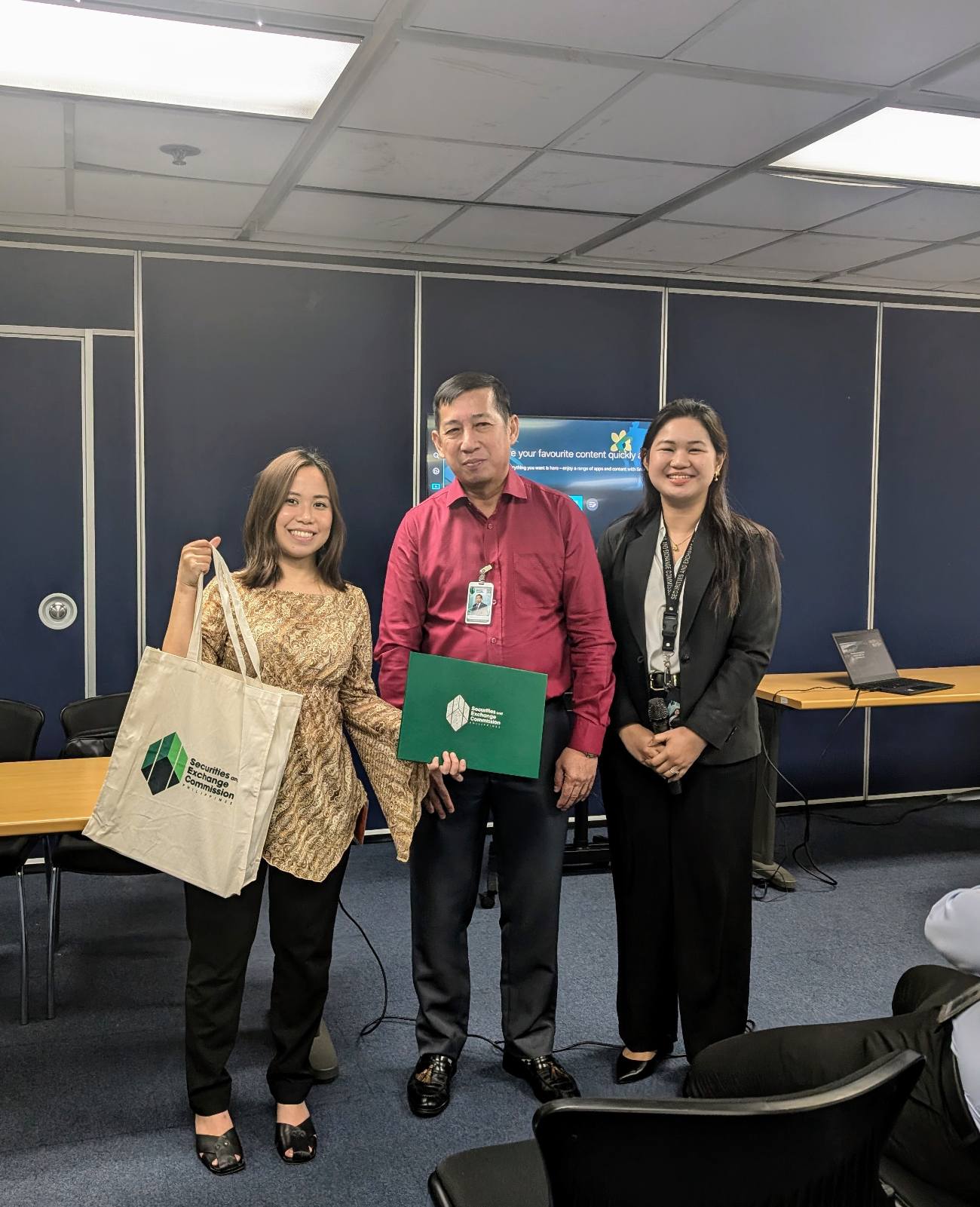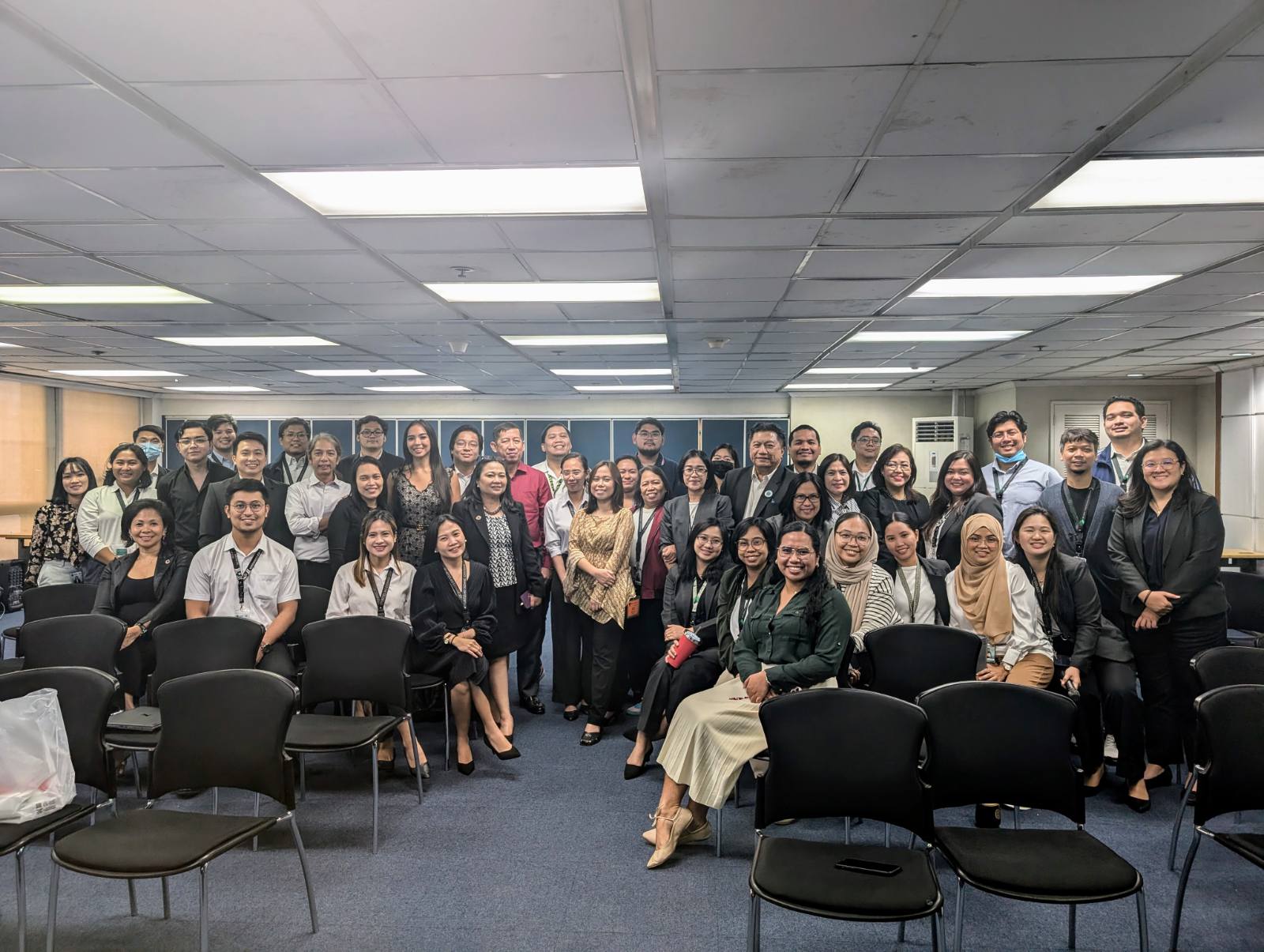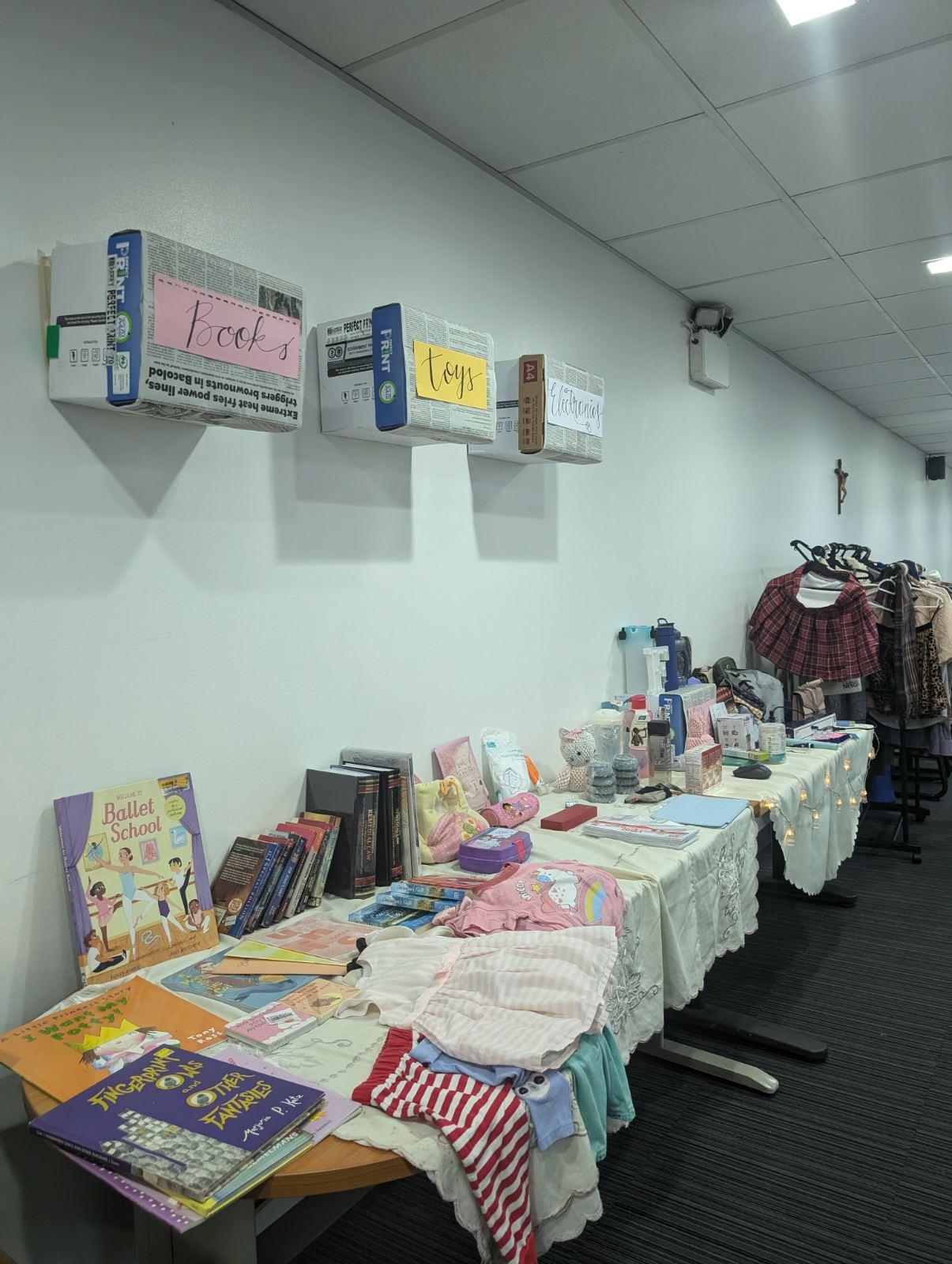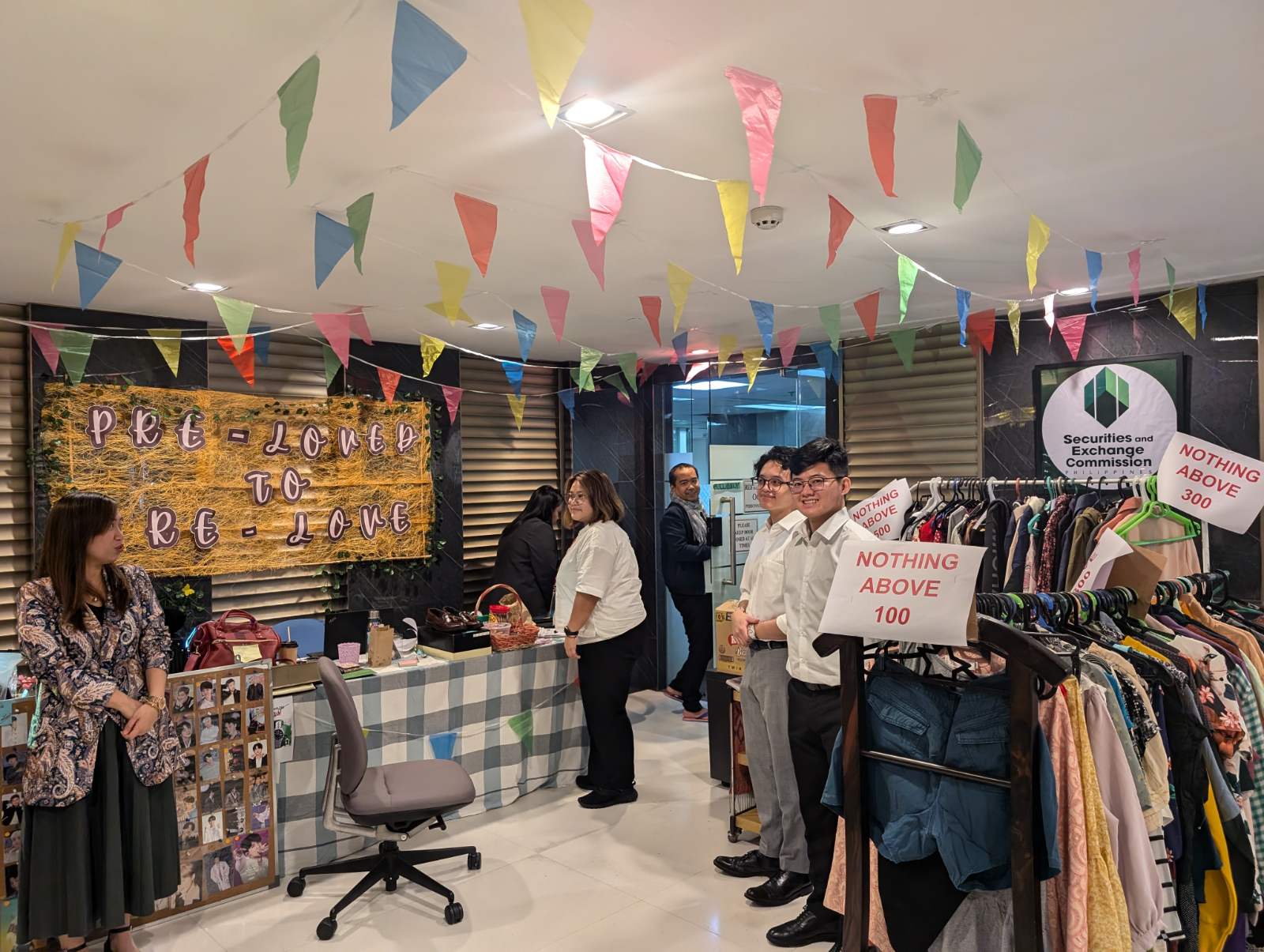Finance to forests: SEC's holistic approach to sustainability
Yesterday, I had the privilege of participating in Sustainability Week at the Securities and Exchange Commission (SEC) main office in Makati City, where I shared my experiences in environmental conservation. Initially, I was surprised by the invitation, as financial institutions had not previously sought our input on such matters. I saw this as a valuable opportunity to discuss field-level sustainability issues and, in turn, learn from the SEC’s initiatives in promoting sustainability within capital markets and its own organization.

Upon arriving at the SEC building, I was warmly welcomed at the “ErBnb” – a pop-up café curated by the Economic Research and Training Department to spark conversations and actions for sustainable development, “one coffee chat at a time.” Named by SEC Chairperson Emilio B. Aquino as a play on Airbnb, the cafe served local coffee and even tupig from Baguio. Each department was tasked with creating a sustainability initiative for the week.
I then headed to the training rooms to speak about my work as advocacy director at Masungi Georeserve Foundation. Despite only one attendee having visited the georeserve, the audience was deeply engaged and interested in our efforts. Our work might be geographically and contextually different — my team in the field and the SEC team in the heart of the metro — but the necessity for sustainability resonated with all, although in diverse ways.
Post-talk, I had an insightful conversation with Atty. Rachel Esther Gumtang-Remalante, director of the SEC’s Corporate Governance and Finance Department, about the SEC’s sustainability initiatives. She highlighted the SEC’s dual approach: external and internal efforts. Externally, the SEC mandated publicly listed companies to submit sustainability reports through Memorandum Circular No. 4, series of 2019, integrating these into their annual reports.

“The idea is that during stockholders’ meetings, the sustainability report will be discussed alongside other items,” Atty. Rachel explained. “As you mentioned in your talk, investors see value in understanding a company's sustainability efforts. Why would you invest in a company that doesn’t care about the future of the planet or its people?”
She proudly noted that 92 percent of companies complied with this new requirement, even amid the pandemic.
I inquired about the significance of these initiatives. “Investors are increasingly serious about how companies address climate change. Businesses cannot thrive in areas vulnerable to climate risks. Companies must be future-proof, climate-proof, and sustainable in the long run. This initiative ensures investors receive this critical information,” Atty. Rachel emphasized.
Internally, the SEC practices what it preaches. Last year, it issued its own sustainability report and began measuring energy consumption, linking it to cost savings across its headquarters and 11 extension offices nationwide. Additionally, the SEC adopted a forest near the Angat Watershed as a “baby step” toward greater environmental commitment.

These insights were invaluable in understanding the dynamics of sustainability in the Philippine investment landscape.
As I explored other departments’ contributions to Sustainability Week, I was continually impressed by the diversity of ideas promoting sustainable lifestyles among employees. The Office of the General Counsel’s “Pre-Loved to Re-Love” initiative sold pre-loved items at significant discounts to encourage responsible consumption. The Office of the General Accountant’s “Swap Shop” facilitated the exchange of unused or pre-loved items, popular among both officers and cleaning staff.
It was refreshing to see proactive and creative approaches to sustainability both inside and outside office walls. Despite the trend toward sustainability, some major corporations, both foreign and local, still violate sustainable development principles. A prime example is the threat of a wind farm development within the wildlife sanctuary of Masungi Georeserve in Rizal, which seriously risks geological integrity and bird populations in an ecologically fragile area. However, there is hope as regulators like the SEC step up to safeguard our collective future.

The efforts of the SEC demonstrate a significant stride toward integrating sustainability into both corporate governance and daily operations. These initiatives are not just about tick-box compliance but embody a genuine commitment to a sustainable future, setting a precedent for others to follow.